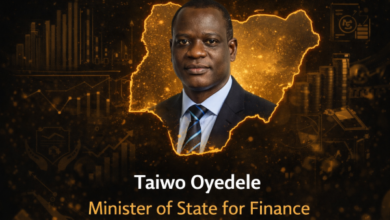FIRS Certifies eTranzact for Nationwide E-Invoicing Rollout

Nigeria has taken another decisive step in its digital tax reform journey as the Federal Inland Revenue Service (FIRS) approved eTranzact International Plc as a certified provider for its nationwide e-invoicing system.
The certification expands on earlier collaborations under Tax Administration 2.0, where eTranzact helped automate VAT processes, and now positions the fintech giant as a central player in the government’s digital-first tax strategy.

From Tax 2.0 to 3.0: Nigeria’s Digital Leap
The FIRS’ new Merchant Buyer Solution (MBS) is designed to digitise invoicing across business-to-business (B2B), business-to-consumer (B2C), and business-to-government (B2G) transactions. Structured e-invoices will:
- Streamline compliance for millions of businesses.
- Enhance transparency in tax administration.
- Curb leakages by closing gaps in reporting.
- Improve trust between taxpayers and government.
Mike Adoga, Acting Director of Tax Automation at FIRS, explained that providers like eTranzact were certified after meeting rigorous requirements for national scale delivery, security, neutrality, and data protection—with the National Information Technology Development Agency (NITDA) offering critical technical oversight.
“This is not just about digitisation, it’s about credibility,” Adoga stressed.
eTranzact’s Track Record
For eTranzact, this recognition consolidates two decades of building secure, scalable, and compliant infrastructure for Nigeria’s financial system.
- In 2017, the company co-deployed APIs under TaxPro Max to automate VAT and WHT reporting for banks and businesses.
- In 2024, it built a verification system for the Military Pensions Board, enabling seamless identity authentication for pensioners within and outside Nigeria.
- Since 2003, it has operated under CBN licences for Switching, Processing, and Mobile Money Operations, supporting payments across industries.
Niyi Toluwalope, CEO of eTranzact, described the approval as both a responsibility and an opportunity.
“E-invoicing is more than compliance. It’s about transforming the way businesses interact with government—creating transparency, efficiency, and value for every stakeholder,” he said.
The Bigger Picture: Why E-Invoicing Matters
Nigeria’s tax-to-GDP ratio remains one of the lowest in Africa, hovering below 11%. The nationwide rollout of structured e-invoicing is expected to:
- Reduce fraud and underreporting in trade transactions.
- Standardise record keeping across SMEs and large corporates.
- Align Nigeria with international tax standards, boosting investor confidence.
- Support fiscal sustainability by broadening the non-oil revenue base.
Analysts say if implemented successfully, e-invoicing could raise billions of naira in additional collections while simplifying the compliance burden for honest taxpayers.
BRANDECONOMY Takeaway
Nigeria’s e-invoicing agenda signals a historic shift in tax administration—from paper trails riddled with opacity to a digital framework built on transparency and efficiency.
With eTranzact now at the heart of the system, the question is no longer if Nigeria can digitise taxation, but how quickly and effectively it can scale.
In a fiscal era where non-oil revenues must power national growth, seamless platforms like this are no longer optional—they are the backbone of Nigeria’s competitiveness in a data-driven global economy.









